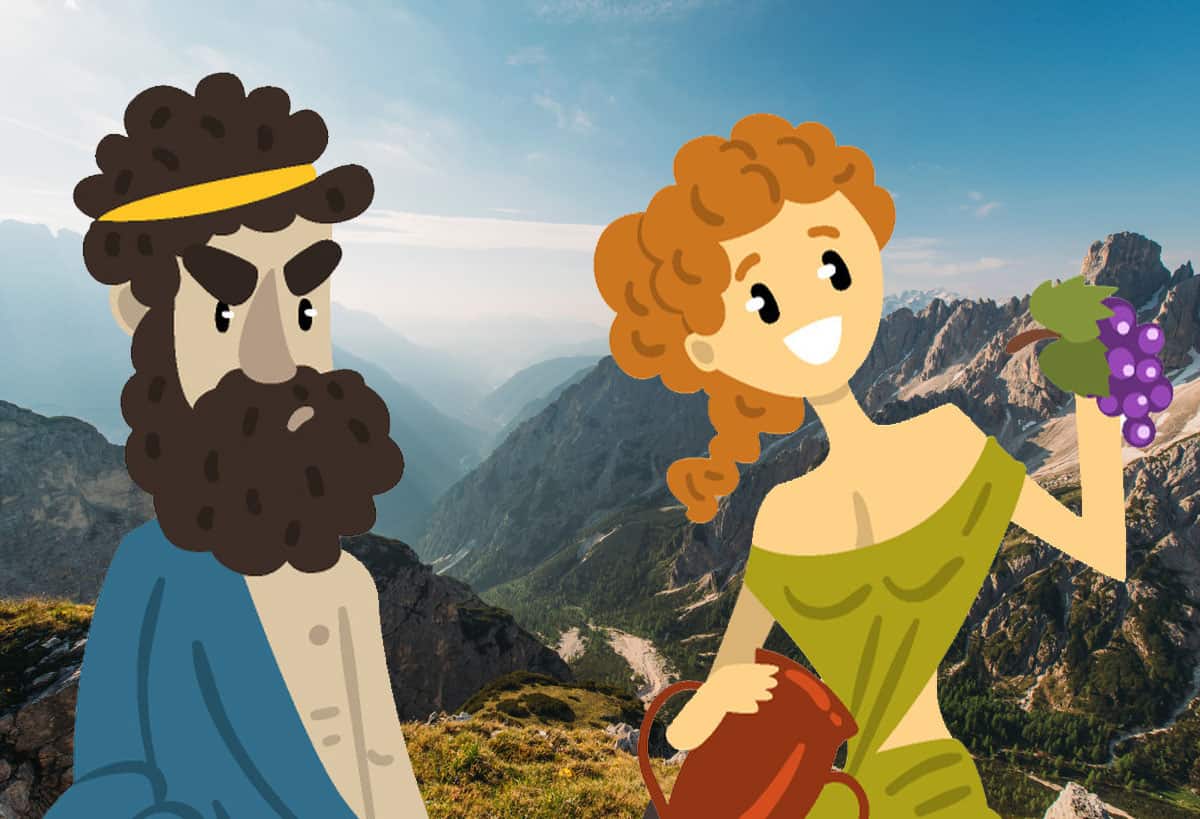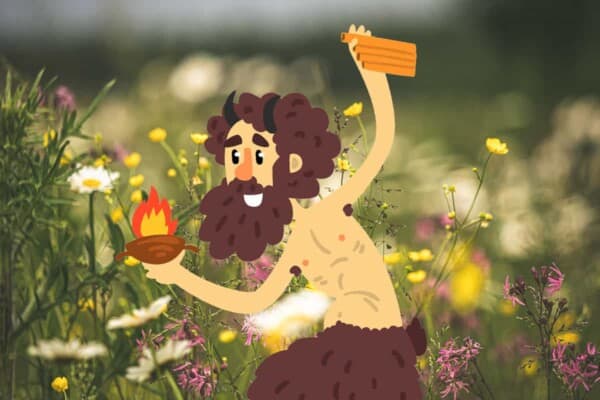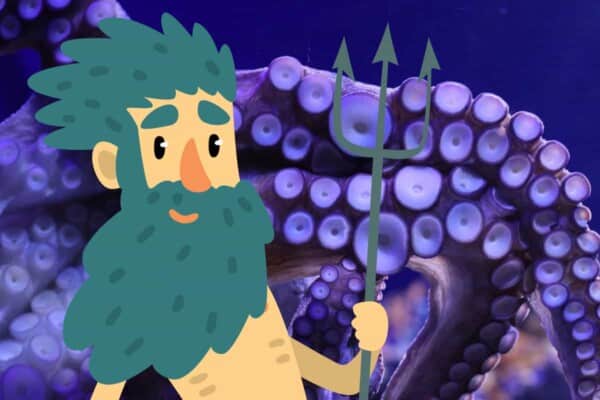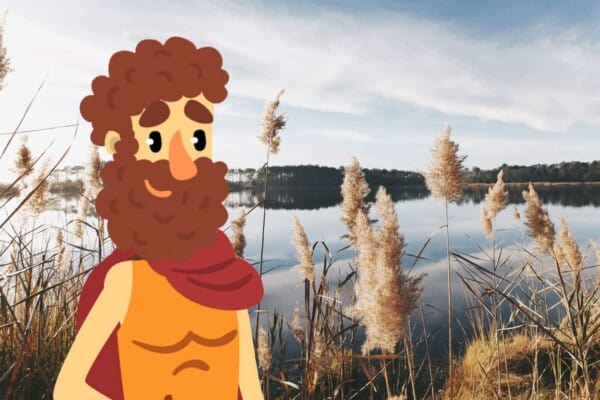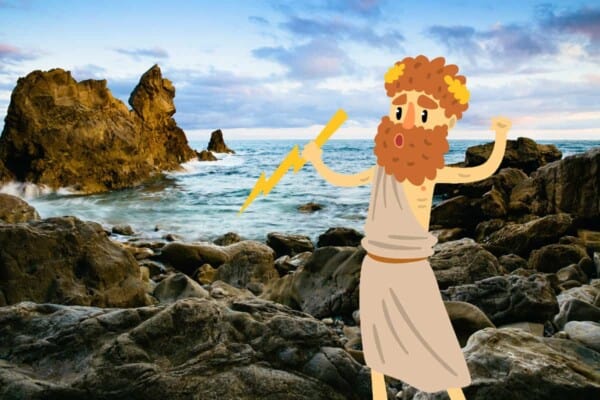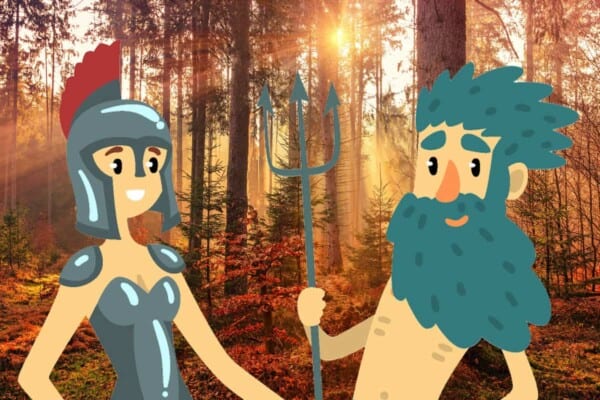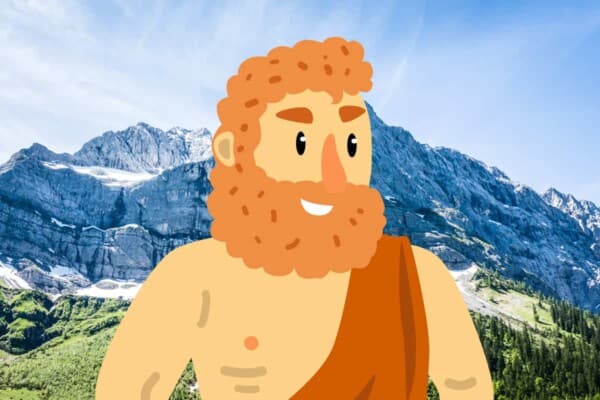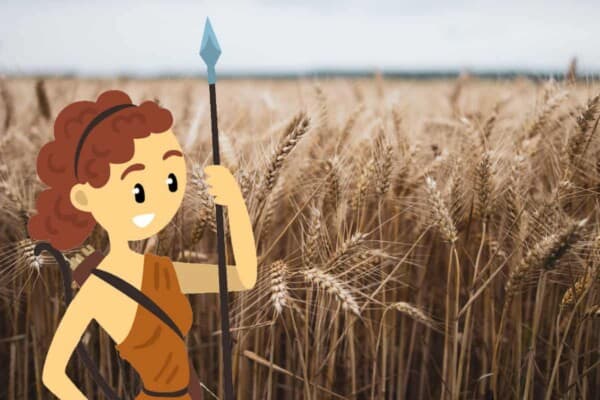As the son and eventual conqueror of the Titans, Zeus had an intense relationship with his family! Starting from the day his mother hid him so that he wouldn’t get swallowed like all his older siblings by their father, Zeus became a leader of gods and men. Amongst those gods were the siblings he rescued and led to war, before ruling alongside them on Olympus.
As well as the Olympians, Zeus had another half-brother through his father, Kronos. Each of Zeus’s siblings is listed below with some information about them, their relationships with the king of the gods, and details of how they were worshipped in ancient times.
The Brothers and Sisters of Zeus
1. Hestia
The goddess of the hearth and original Olympian was the oldest-born of Kronos and Rhea. Her duty was to maintain the fires of Olympus and watch over all sacrifices. Of all the burnt offerings to the gods, a portion went to her.
She was celibate and chose to remain virginal, rejecting suits from her brother Poseidon and Zeus’s son, Apollo. Hestia was the first to be swallowed by Kronos and the last to be regurgitated. This made her both the oldest and the youngest of the siblings.
Though she was originally an Olympian, later myths named Dionysus in this role instead. There was no hard rule over which of them was the ‘official’ Olympian, and modern interpretations often claim that after Dionysus reached adulthood, she rescinded her throne on Olympus to him.
Hestia was mostly worshipped by the matriarchs of the household and those who valued chastity. She was considered the greatest goddess amongst the mortals. She was also worshipped by several military groups as a symbol of the domesticity which awaited them upon their return home.
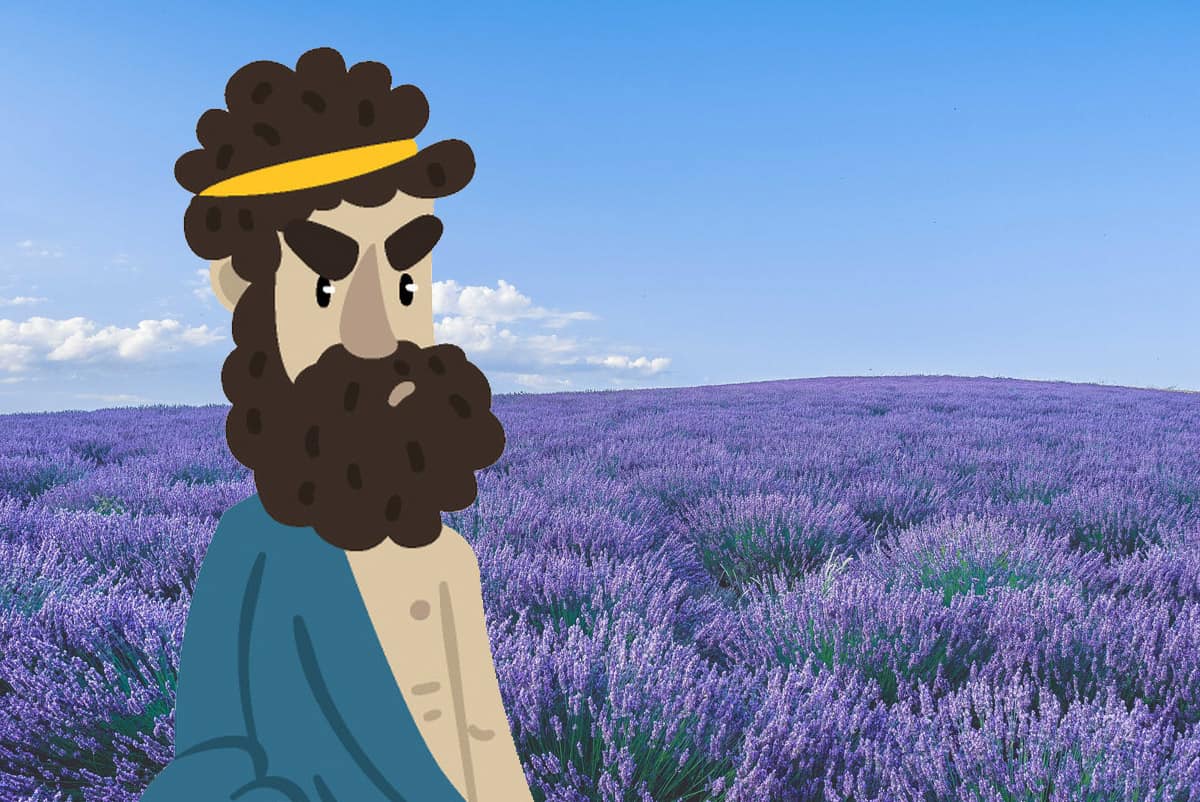
2. Hades
The god of the dead and the king of the Underworld was the second child and first son of the Titans. He fought alongside his siblings during the Titanomachy and helped win Olympus, but when the three brothers drew lots to see where each would rule after, he selected the Underworld. Though he was one of the original gods, he never had a seat on Olympus.
Hades’s wife, Persephone, is usually the son of Zeus and their sister, Demeter. He abducted her with Zeus’s permission from Olympus and carried her to the Underworld to be his wife. By all accounts, their marriage was one of the most faithful in Greek myth, with very little infidelity and a culture where King and Queen ruled side by side.
As well as his duties in the Underworld, Hades was also a god of riches. In this form, he is known as Pluton, from which his Roman name, Pluto, is derived. This was because jewels and great metals were found underground, which is where the land of the dead was located.
Though Hades was not usually actually worshipped, neither was he derided by mortals, as he was not a Satanic figure. He was instead usually portrayed as ambivalent toward mortals, and did not involve himself in their affairs as his other siblings did except in very rare circumstances.
3. Demeter
The second-born daughter of Rhea and Kronos was the goddess of the harvest and the seasons, as well as the guardian of sacred law. She had children with two of her three brothers, Zeus and Poseidon, and her daughter Persephone married her other brother, Hades. Demeter caused winter to express her grief the six months of the year that Persephone was in the Underworld with Hades and spring and summer for the joy of Persephone returning to Olympus.
This goddess was revered by many, and there were many female-only cults that dedicated themselves to her and her worship. The woman-only festival of Thesmophoria was celebrated all over Greece and kept secret from men, who were not even allowed to speak of it. Especially in Attica, all married women were expected to keep the festival, though unmarried women and non-citizens were not included.
Demeter’s children by Poseidon were the horse Arion and the goddess Despoina. By the human man Iasion, she bore Plutus, Corybas, and Philomelus. By Karmanor, she had Chrysothemis and Eubuleus. King Midas, was the father of Lityerses.
In Orphic myth, a version of Dionysus is a son of Demeter and Zeus.
4. Poseidon
Poseidon is often portrayed as the closest to Zeus, and the two brothers are very similar. With their philandering ways and audacious pride – not to mention their abundance of children – the god of the sea and the god of the sky were as alike as only brothers can be. Poseidon drew the oceans after the Titanomachy, and as well as ruling over those, he was god of horses, earthquakes, and storms.
One of his greatest rivals was Zeus’s daughter and his niece, Athena. The two competed over which would rule over the city of what is now known as Athens, but the mortals chose Athena in the end, to which Poseidon responded with a terrible flood.
Poseidon was heavily associated with horses. His son Arion, a sapient horse, was conceived after he chased Demeter, who tried to hide herself as a mare. He turned into a stallion and mounted her anyway. As well, the winged horse Pegasus is his son, born from the blood of Medusa after Poseidon raped her on the floor of a temple of Athena and she was later slain by Perseus.
His wife was Amphitrite, a sea nymph. Their son, Triton, was half-man and half-fish, making him one of the first mermen.
He was also the father of several monsters, including the Cyclops Polyphemus, who was blinded by Odysseus. After this, Poseidon targeted Odysseus as an enemy, and was the cause of his troubles in returning home. Pegasus’s twin brother Chrysaor, also monstrous, was Poseidon’s son and a father to giants.

5. Hera
Zeus’s older sister and his wife and queen, Hera was the Olympian goddess of marriage, childbirth, and family. She was the seventh and last woman married by Zeus, long after they fought together to overthrow Kronos. After the defeat of the Titans, the gods ascended for the next era – that of gods and men.
Unfortunately, she is mostly known for her jealousy over Zeus’s numerous extramarital affairs. Since she was harshly punished if she stood up to him directly, her focus settled on the unfortunate women and children in these unions. Despite the fact that she avoided his punishment, however, even Zeus feared her raging temper. Much of their story involves Zeus trying to escape from her punishments, too!
Zeus gained Hera’s hand in marriage through trickery. After deciding that only his sister would do for his queen, he transformed himself into the guise of an injured bird. When Hera took the bird inside and held it to her breast to comfort it, Zeus transformed back into humanoid form and raped her. In her shame, Hera agreed to marry him.
Her son Hephaestus is often Zeus’s child, but in many other versions of the myth she created him herself by parthenogenesis in revenge for Zeus birthing Athena from his forehead. Hephaestus was such an ugly child that she threw him from Olympus. He got revenge when he grew by creating a throne which trapped Hera in place, and only let her go when he was given Aphrodite’s hand in marriage.
6. Chiron
Chiron was the wisest of the centaurs, different from all of the rest of his kind. His father was Kronos and his mother Philyra, whom Kronos impregnated in the form of a horse. Born half-horse, half-man, Chiron dedicated his life to study, and he became a mentor of many great heroes.
He was different from the other centaurs, who were much wilder and less eloquent. These centaurs were descended from Ixion and a cloud nymph named Nephele. While these centaurs had the torso of a man and the body and legs of a horse, Chiron’s front legs are usually those of a man.
Chiron was also a brilliant medic as well as an academic, and he discovered botany and herbal medicine and gave them to mortals. He also wore clothes, showing his advanced civilization when compared to other centaurs. They were considered wild and rough, and they were savage. Chiron was not accepted by them, but he was also rejected by non-centaurs when the centaurs were driven from their home.
First and foremost, Chiron was a mentor of wise men and heroes. Amongst others, he taught Heracles, Jason, Achilles, Perseus, Theseus, and even the god Dionysus. Many were his nephews as well as his students, and Dionysus was a particular favor of his. He married a nymph and by her had three daughters and one or two sons. To all of these, he was considered an excellent father.
After the Titan Prometheus was punished for bringing fire to humanity, Chiron gave up his immortal life to save him, allowing himself to be slain. Zeus took pity on his wise brother and placed him as a constellation amongst the stars.

